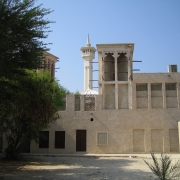Tirmidhi’s Kitāb al-‘Ilal – annotated translation By Jonathan Brown
Abū ʿĪsā Muḥammad b. ʿĪsā al-Tirmidhī is one of the most influential figures in the Sunni hadith tradition. Born in about 210/825 near the city of Tirmidh on the northern bank of the Oxus River in modern-day Uzbekistan, he traveled widely in northeastern Iran, Iraq, and the Hejaz to study with the most sought-af ter scholars and transmitters of hadiths in his day. These included scholars who had themselves travelled widely in the quest to hear hadiths, such as Qutayba b. Saʿīd of Balkh (d. 240/854), as well as scholars who would become famed for their mastery of both hadith and law, such as al-Dārimī of Samarqand (d. 255/869) and Abū Dāwūd (author of the famous Sunan, d. 275/889). They also comprised the most respected masters of hadith criticism, including Muslim b. Ḥajjāj of Nishapur (author of the Ṣaḥīḥ, d. 260/875) and Abū Zurʿa al-Rāzī of Rayy (d. 264/878). But his most famous and influential teacher was none other than al-Bukhārī (author of the Ṣaḥīḥ, d. 256/870). At some point al-Tirmidhī returned to his hometown, where he died in 279/892 at around seventy years of age. Today his grave can be visited just north of Tirmidh in Uzbekistan, enclosed in an idyllic brick mausoleum built in the old Samanid style and frequented by local pilgrims. Al-Tirmidhī’s legal and theological leanings are clear in his works. Though he predated the solidification of the four schools of law, he identified with the general legal and theological tradition that he refers to as the ‘People of hadith’ (ahl al-ḥadīth). Notably, he also refers to this group as the ‘People of the Sunna and the Community’ (ahl alsunna wa’l-jamāʿa)-perhaps the earliest recorded instance of a scholar identifying himself with this designation. 1 Al-Tirmidhī describes this group as looking to exemplars like Mālik (d. 179/796), Sufyān b. ʿUyayna (d. 196/811), ʿAbdallāh b. al-Mubārak (d. 181/797), and Isḥāq b. Rāhawayh (d. 238/853). But the most influential figure in al-Tirmidhī’s theological universe was al-Bukhārī’s teacher and the pivot of the Ahl al-Sunna in Baghdad, Aḥmad Ibn Ḥanbal (d. 241/855). Al-Tirmidhī’s legal views









